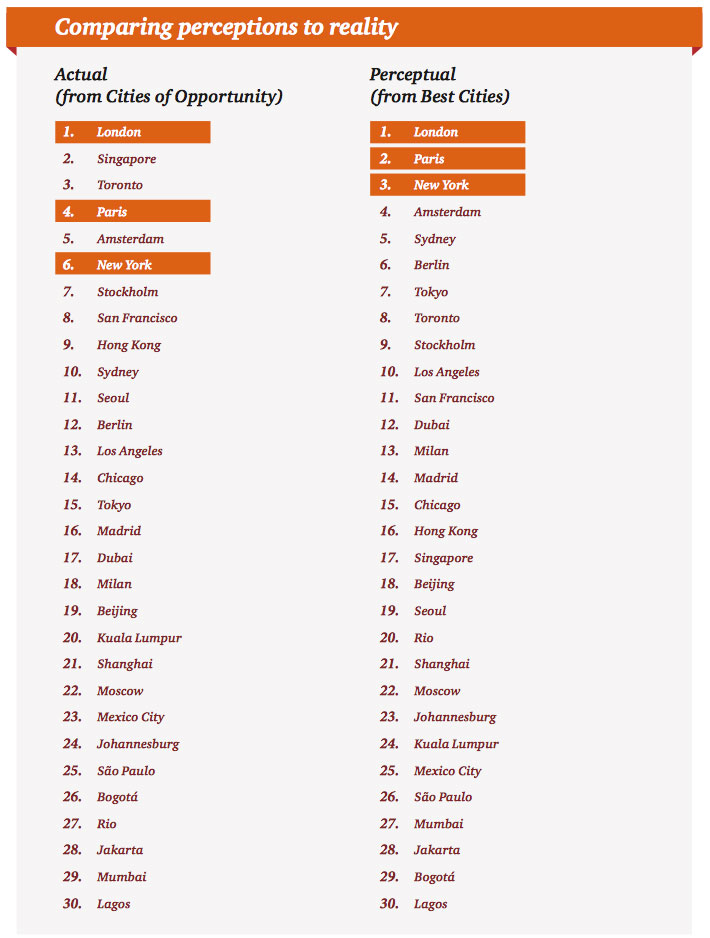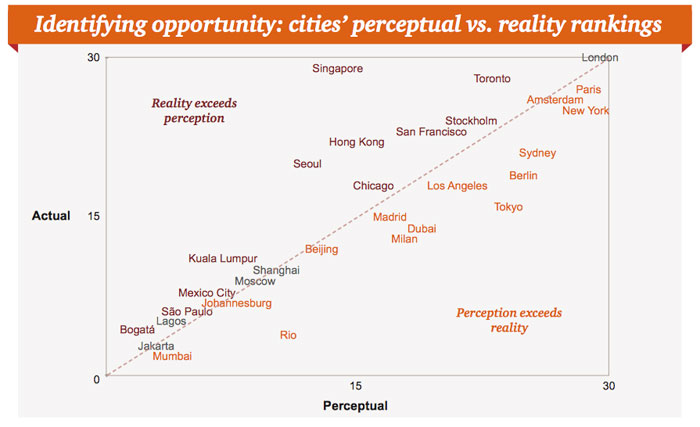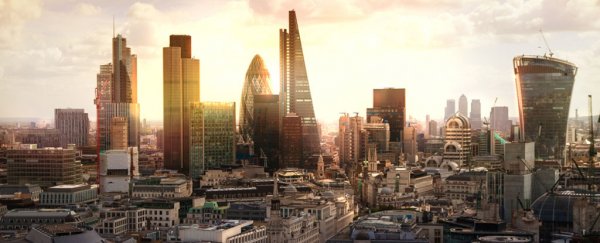When we think about the world's best cities, there are a few names that tend to get dropped more often than others – New York, Paris, and London, for example.
But how well do our perceptions of these modern metropolises match up to the reality? According to a new report, there are some big gaps between how outsiders view world cities and the reality for those who actually live there – and even the most desirable cities don't always live up to the hype.
The new report compiles data from two separate studies by researchers at consultancy firm PwC. In the first study, researchers surveyed a group of 5,200 people from 16 countries aged 18 or older on their thoughts regarding 30 global cities.
The participants were made up of a mix of the general populace, and business leaders/high income earners (what PwC calls "elites"). They were asked to rate each city in terms of how they perceived it from the outside, based on criteria such as infrastructure, public transport, affordability, and entertainment and cultural attractions.
From their responses, the researchers created an aggregate score for each city based on its perceived relative strengths and weaknesses.
In a separate study, the same 30 cities were objectively ranked using existing information – such as census data, national statistics, and commercial surveys – sourced from the people who actually live there.
This data covered 10 categories, including transportation and infrastructure; health, safety, and security; demographics and liveability; and sustainability and the natural environment.
When the two Top 30 lists were lined up, as you can see in the image below, it's clear that London sure is living up to hype; Berlin and Tokyo, not so much; and Hong Kong and Singapore are underrated gems.
 PwC
PwC
London in particular can hold its head high, taking out the top position in both the perceptual and actual charts. This not only suggests that London's "brand image" – as the PwC researchers call it – is in harmony with its infrastructure and culture, but also that it's got a lot of good things going for it.
In contrast, while Paris and New York enjoy the next best city reputations in terms of how we feel about them (coming second and third respectively), they don't measure up in reality, dropping to fourth and sixth in the actual listing.
In their place, Singapore and Toronto turn out to be the world's second and third best cities – going off this research, at least – but in perception, Toronto's at #8, and Singapore doesn't even make it into the Top 10 (it sits at #17).
But what's interesting is how right the respondents did get it much of the time. Many countries occupy similar positions in both the lists, showing that the gap between what we think about them and their relative strengths/weaknesses isn't significant.
In fact, in addition to London, a number of cities even match up perfectly across both charts: Shanghai (#21), Moscow (#22), Jakarta (#28), and Lagos (#30).
To get a better sense of which cities align best between perceptual and actual ratings, the image below is helpful. Cities on the middle line, like London, are where the two ratings line up. Whereas, on the right, perception exceeds reality, and on the left, reality exceeds perception:
 PwC
PwC
While we don't always get it right, the report is actually kind of reassuring, in that the gap between our expectations and people's real experience of these world cities isn't even more divergent.
After all, sometimes this kind of disconnect can have far-reaching consequences: there's even a rare syndrome – called Paris syndrome – where people experience hallucinations and anxiety attacks upon finding out that the French capital doesn't live up to their (perhaps unrealistic) hopes.
So, if you're planning on travelling to any of these destinations soon, maybe take a quick look at the ratings based on the actual experience of living there. It could keep your expectations a little more in check, and that might not be a bad thing.
You can find out more about the research in the video below:

The report is available on PwC's website.
